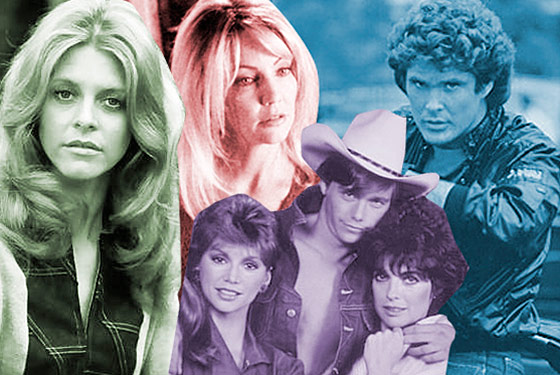
Here we go again: According to TV Guide, TNT is moving full steam ahead on its remake of the classic eighties nighttime soap Dallas, and the network is even negotiating deals with Larry Hagman, Patrick Duffy, and Linda Gray to join the cast and reprise their old roles. “It’s a perfect sequel to continuing the Dallas tradition,” Duffy told TV Guide, but is it? TV is already littered with plenty of failed remakes (and there’s plenty more on the way, as Vulture told you earlier today), and if the producers of Dallas aren’t careful, they’ll walk into the same traps that doomed those shows. Here are three lessons they should follow from the misfires that came before them.
Don’t bring back the old actors.
Hasn’t Dallas learned anything from the CW’s follies in reviving 90210 and Melrose Place? The former tried to make room for Jennie Garth, Shannen Doherty, and Tori Spelling during its first season, only to find that their screen time came at the expense of establishing the show’s new characters. (That season also tried to service both Rob Estes and Lori Loughlin as the leads’ parents — was the original 90210 ever about so many adults?) Melrose Place doubled down on this failed gambit: Unable to muster up much drama with its new cast, the show (putatively about twentysomethings) too often centered around fortysomething refugees from the original series. Sure, Heather Locklear is a famous TV star of yesteryear, but for the young demo that the CW was trying to attract, she may as well have been Kirstie Alley. Hopefully the inevitable 2025 remake of Sex and the City will learn this lesson before its four young ladies have to share the screen with guest star Kim Cattrall in her dotage: Either recast the old characters (as CBS’s successful Hawaii Five-O remake did) or replace them with new ones.
Camp value isn’t enough.
Former NBC president Ben Silverman revived shows like American Gladiators and Knight Rider because he figured everyone was already familiar with the brand. He was right, but for the wrong reason: People remember those shows for their healthy helpings of cheese. It doesn’t matter if the remake is darker and grittier, like NBC’s attempt to update The Bionic Woman: If your core property is so notoriously laughable that you can buy the ironic T-shirt and lunchbox in the front room of Urban Outfitters, it might not be ripe for remaking.
If the concept isn’t hooky enough on its own, don’t remake it.
When it comes to remakes, plot trumps star power. If the original series is better known for its lead performance than for its concept, it’s a success that will be hard to replicate, as NBC (once again!) found when it tried to reboot The Rockford Files. Without James Garner at the center, the show is little more than a standard detective procedural, and it would be hard for anyone to channel Garner’s specific panache. (Dermot Mulroney was the network’s pick, and the pilot wasn’t picked up.) Fox ran into a similar problem when the network attempted to Americanize Absolutely Fabulous with Kristen Johnson and Kathryn Hahn: Could anyone do these iconic characters better than Jennifer Saunders and Joanna Lumley? (And without their star performances, a revamped AbFab just a comedy about outrageous ladies who drink too much during the day, which we already have plenty of.)
Keck’s Exclusives: Dallas 2011: Miss Ellie Dead, Bobby Remarried [TV Guide]

